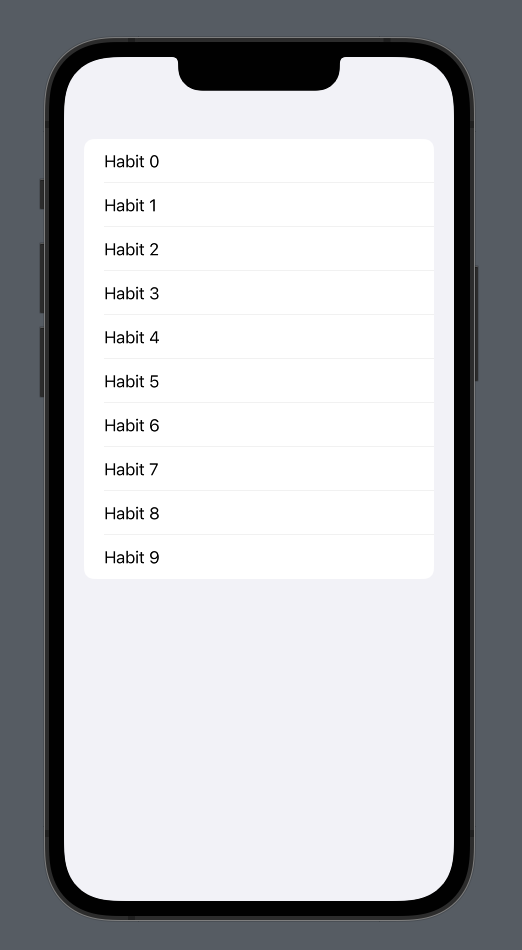Realm+Previews extension
We're going to add to our previews some Realm-powered code. Create a Realm+Previews.swift file and add an extension of PreviewProvider. PreviewProvider is a Protocol that all SwiftUI Previews implement. So if we extend that protocol, all our previews will have the extended code.
Realms in Memory
In this extension we'll add a function that creates and return a Realm with an in memory store. This is great for testing, as changes are not persisted to disk. To create that Realm, we 1st create the realm configuration and then the Realm using that configuration.
import SwiftUI
import RealmSwift
extension PreviewProvider {
static func emptyRealmInMemory() -> Realm {
// configuration for an in-memory Realm
var conf = Realm.Configuration.defaultConfiguration
conf.inMemoryIdentifier = "preview"
// create and return a realm
let realm = try! Realm(configuration: conf)
return realm
}
}
Some data
Now we'll add some data. We run a query to get all Habits in the Realm. If there's none, we insert 10 new Habit objects.
To store data in a Realm we just create an Object, in this case a Habit, add it to the collection and then save the collection inside a write transaction. No need for DAOs or ORMs, we just instantiate our model objects and call realm.add inside a realm.write transaction.
static func realmWithData(realm: Realm = emptyRealmInMemory()) -> Realm {
let existingHabits = realm.objects(Habit.self)
// if there's no habits (which won't as we're using an empty realm by default) we add a few
if existingHabits.count == 0 {
let habits = Habits()
for i in 0...9 {
habits.habits.append(Habit(name: "Habit \(i)", desc: "Description \(i)"))
}
try? realm.write({
realm.add(habits)
})
}
return realm
}
Using it in our previews
To use this data we change the preview in ConfigView.swift. We can call realmWithData as it's a static member of PreviewProvider now.
struct ConfigView_Previews: PreviewProvider {
static var previews: some View {
let realm = realmWithData()
return ConfigView(habits: realm.objects(Habits.self).first!)
.environment(\.realm, realm)
}
}
